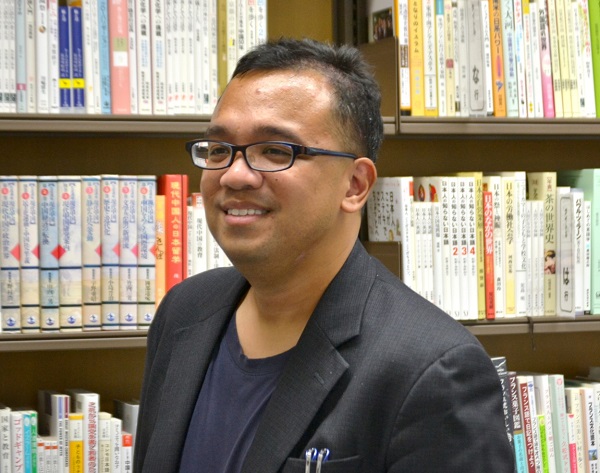Research News:Dialogues across language and culture
June 15, 2023
Contextualizing theories of classroom dialogue in language education
Dr. Roehl Sybing recently published a book that looks at classroom dialogue from multiple angles, exploring numerous discussions in research and pedagogy.
Teacher talk seems intuitive – the expert imparts knowledge onto novices, who passively receive expertise like a car or machine receives parts at every station on an assembly line. In reality, an effective teacher in an era of dynamic and higher literacies is less of a factory worker and more of an active negotiator who tries to understand where their students are coming from in order to reach them. The language classroom amplifies this challenge where the negotiation not only centers on the knowledge itself but the means of communication for that knowledge. When teacher and student come to the classroom with different languages and cultures, successful dialogue becomes all the more important.
A classroom dialogue is not merely the act of teacher and student talking with each other. In an effective dialogue, they negotiate meaning together, resolving any differences in understanding to explore ideas and create new knowledge. A dialogic classroom that accomplishes these objectives can be more inclusive and welcoming of all students’ perspectives and knowledge bases. All that said, scholarship on classroom dialogue has largely overlooked the language learning context, where gaps in linguistic and cultural knowledge require the functions of dialogue for mutual understanding.
Whether the goal is to understand theories of interpersonal dialogue or to receive guidance on effective teaching, a new book entitled Dialogue in the Language Classroom: Theory and Practice from a Classroom Discourse Analysis provides a comprehensive framework for educators and researchers alike. Longtime language teacher and sociocultural researcher Dr. Roehl Sybing analyzes data from a classroom ethnography involving an English-speaking teacher and his Japanese-speaking students to explore what makes teacher talk and classroom interaction dialogic. Using various theories in teaching and learning, linguistic anthropology, and language teaching, Dr. Sybing examines classroom dialogue in depth to find out how teachers can cross the language gap and engage their students in a meaningful dialogue that advances their learning.
The book looks at classroom dialogue from multiple angles, exploring multiple discussions in research and pedagogy. What role does the students’ first language play in the language classroom? How do teachers mitigate classroom power dynamics to empower students and validate their knowledge? How does the negotiation of meaning in dialogue affect the knowledge being taught in the classroom? These questions and more deserve greater focus in the scholarship on language teaching, leading Dr. Sybing to discuss these issues in extensive detail in his newest book.
Researchers will benefit from the theoretical development provided by a fresh new look at dialogic teaching. Dialogue in the Language Classroom not only explores the meaning-making processes traditionally discussed in scholarship on classroom dialogue but also the affective and critical dimensions of teaching and learning. Where the language classroom deals with issues of language ownership and the nature of expertise, this book argues for the importance of validating students and the knowledge they can share in dialogue in ways that can be useful at classroom and policy levels.
Practitioners will get an extensive guide for how they can approach their classroom engage in a meaningful dialogue with students of all subject-matter disciplines and backgrounds. By deconstructing the myth of the successful teacher as the all-knowing expert, Dialogue in the Language Classroom argues that good teaching requires a dynamic negotiator who can understand the knowledge and cultural bases of their students and co-construct new knowledge through dialogue.
Ultimately, Dr. Sybing’s Dialogue in the Language Classroom seeks to challenge the prevailing paradigms in language education scholarship and in theories of classroom dialogue. Building on existing discussions, this research provides a new lens on multilingual and multicultural interaction to benefit scholars and educators in various fields.
Profile

Roehl Sybing is an Assistant Professor in the Faculty of Global Communications in Doshisha University in Kyoto, Japan. He has been a language educator in Japan and the United States for nearly two decades. His current research examines the sociocultural dimensions of classroom dialogue. He has written extensively on language classroom teaching and learning and qualitative research methodology.
Roehl Sybing
Assistant Professor, Faculty of Global Communications Department of Global Communications
Media contact
Organization for Research Initiatives & Development
Doshisha University
Kyotanabe, Kyoto 610-0394, JAPAN
CONTACT US
